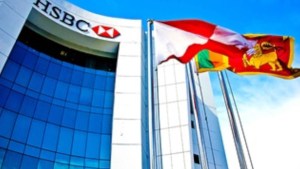Will Chinese Banks Follow HSBC Sri Lanka In Charging 14% On Overseas ECommerce Transactions?
HSBC Moves Adds New Processing Fees For Amazon, Alipay, EBay with Uber Also Likely Affected & Could Usher In Global ECommerce Tariff Wars
By Chris Devonshire-Ellis
HSBC have sent notices to customers in Sri Lanka that ‘to reflect current exchange rate movements’ the bank intend to levy 7% (up from 2.5%) on payments made by Visa and Mastercard for all international transactions from August 25. Also stated is a 5% processing fee for transactions to all overseas and online merchants including dynamic currency conversion (DCC) transactions, also effective from August 25.
DCC is a service offered at selected Point of Sale (POS) both online and overseas when currency options are available in either the credit cards home currency or the overseas currency at the POS. These charges effectively add an additional 11.5% in processing fees for Sri Lanka customers purchasing online or overseas products and services and is widely used by companies such as Uber. It is unclear at this moment if it is purely Sri Lanka that has been selected as a pilot scheme or if HSBS intend to introduce surcharges to other countries. In Sri Lanka, it can be expected that most other banks, both local and international will follow HSBC’s lead.
The development raises interesting questions however for Chinese banks.
In Sri Lanka, the Bank of China opened a full-service branch in Colombo in 2019 and aims to be the largest foreign bank operating in the country. While the bank may decide to levy the same transaction fees for Amazon and Ebay, it could decline to do so for AliExpress and Taobao, which as Chinese online businesses would give them an advantage in Sri Lanka over their US competitors. This would be an especially competitive tactic given Amazon’s dominance in the global ecommerce market, with the company having three portals (US, Japan, and Germany) in the global top five. Ebay and Japan’s Rakuten make up those positions; AliExpress currently ranks 7th while China’s Taobao ranks 11th, Pinduoduo 16th and TMall in 39th place.
The situation is worth exploring; once banks introduce new service charges, they are highly reluctant to later drop them. If HSBC are using Sri Lanka as a test case to piggyback additional revenues off the national online and overseas transactional volume, then that may become a worldwide tactic. If so, it opens up the possibility for banking tariff wars over online transactions – with China potentially deciding not to levy service fees for its own online portals, giving them a significant financial advantage in attracting new clients based on lower service fees.
Related Reading
About Us
Silk Road Briefing is written by Dezan Shira & Associates. The firm has 28 offices throughout Asia, and assists foreign investors into the region. For strategic advisory and business intelligence issues please contact the firm at silkroad@dezshira.com or visit www.dezshira.com






